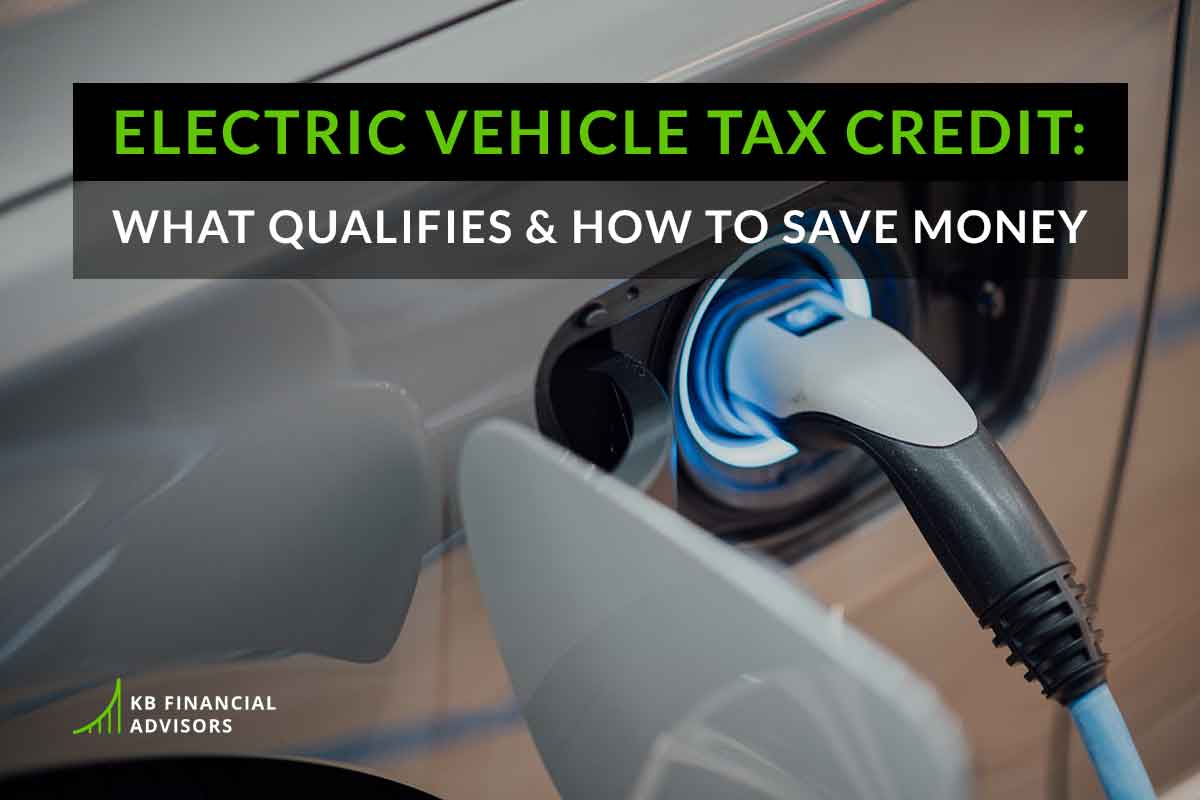You can save money by taking advantage of 2023 EV incentive programs. Here are the rules, restrictions, and how to qualify.
From car behemoths vowing to focus on their electric offerings, to California legislation that bans the sale of new gasoline-powered vehicles in 2035, electric vehicle (EV) adoption is relentlessly accelerating. However, many consumers have yet to take the plunge.
To encourage EV adoption, government incentive programs offer consumers tax credits for purchasing electric vehicles. This gives consumers the chance to save thousands of dollars.
Continue reading to learn how you can save money by taking advantage of 2023 EV tax credits.
Purchase of a new electric vehicle
If you have or plan to buy a new electric vehicle on April 18, 2023 and after, you can expect to receive some money. If your vehicle meets the critical minerals requirements, you can receive $3,750, and you can receive an additional $3,750 if it meets the battery components requirements. That means you can get up to $7,500 in credits with the purchase of a new EV.
Keep in mind, not everyone is eligible for credits; the government set an income-based limit, and those who exceed it won’t receive credits for their EV purchases.
Here are the adjusted gross income (AGI) limits for new EV purchases:
- Married filing jointly: $300,000
- Head of household: $225,000
- Single and all other filers (e.g. married filing separate, qualifying widower, etc): $150,000
You can use your modified AGI from the year you take delivery of the vehicle or the year before, whichever is less. If your income is below the threshold for one of the two years, you can claim the credit.
Beyond AGI limits, you also need to meet other requirements. Make sure your vehicle:

- Has a gross weight under 14,000 pounds
- Is made by a qualified manufacturer
- Undergoes final assembly in North America
- Meets critical mineral and battery component requirements (for purchases after 4/18/2023)
- Is purchased brand new
Also make sure:
- The seller reports required information to you at the time of the sale and to the IRS
- The vehicle’s MSRP does not exceed $80,000 for vans, SUVs, and trucks, and does not exceed $55,000 for all other vehicles, like sedans, hatchbacks, cars
See if your car meets these requirements by using this tool.
EV credits are nonrefundable and are claimed on tax Form 8936. Come tax time, you’ll need the following info about your vehicle:
- Year, make, and model of your vehicle
- Vehicle Identification Number (VIN)
- Date vehicle was purchased
- Amount you paid
Purchase of a used vehicle
As of January 1, 2023, you can receive a credit for purchasing a qualifying used electric vehicle. The credit equates to 30% of the vehicle’s sale price, and the maximum credit you can earn is $4,000.
These EV credits are nonrefundable, and excess credit can be carried forward to future years.
Here are the adjusted gross income limits for used EV purchases:
- Married filing jointly: $150,000
- Head of household: $112,500
- Single and all other filers (e.g. married filing separate, qualifying widower, etc): $75,000
You can use your modified AGI from the year you take delivery of the vehicle or the year before, whichever is less. If your income is below the threshold for one of the two years, you can claim the credit.
Beyond AGI limits, you also need to meet other requirements. Make sure your vehicle:
- Has a sale price of $25,000 or less
- Has a gross weight under 14,000 pounds
- Is used primarily in the United States
- Is purchased from a dealer, who must report required information to you at the time of the sale and to the IRS
- Has a battery capacity of at least 7 kilowatt hours
- Has a model year that’s at least 2 years earlier than the calendar year you purchase it in
How you go about purchasing the car matters, too. Make sure you:
- Don’t purchase the vehicle for resale
- Aren’t the vehicle’s original owner
- Have not have claimed another used vehicle credit in the 3 years before the purchase date
Pro tip:
Whether you plan to purchase a new or used EV, here’s a planning opportunity to consider:
If your AGI is going to exceed the limit to claim the credit on your tax return, consider “giving” your credit to the dealer by leasing a vehicle. Your dealer can claim the credit themselves, and in turn, you can use that to reduce the lease price or have it replace your down payment. We recommend working with your dealership to discuss all possible avenues, as this can vary from dealer to dealer.
California Clean Vehicle Rebate Project
The California Clean Vehicle Rebate Project (CVRP) promotes clean vehicle adoption in the state by offering rebates for the purchase or lease of new, eligible zero-emission vehicles, including electric, plug-in hybrid electric, and fuel cell vehicles.
CVRP rebates range from $650 to $7,500, and any amount you receive from this program can reduce the federal credit you’re eligible for.
Be sure to check the list of qualifying vehicles before you make a purchase, as the rebates can be exhausted and deem certain vehicle models ineligible for the program.
Here are the gross annual income limits for EV purchases:
- Married filing jointly: $200,000
- Head of household: $175,000
- Single: $135,000
You’ll want to know a few things about CVRP eligibility before making your purchase:
- Applications must be submitted within 90 calendar days of the purchase or lease date to be eligible for a rebate
- You must retain ownership of your vehicle for at least 30 consecutive months immediately after the purchase or lease date, otherwise you’ll have to repay the rebate
- You’re eligible to receive no more than one CVRP rebate via direct purchase or lease as of December 3, 2019. If you received a rebate prior to this date, you may claim a rebate just one more time
If you want some extra support, don’t be afraid to seek help from your dealership. They know which vehicles qualify for the CVRP rebates and can guide you through the process.
Rebates for EV chargers
There’s a chance you don’t qualify for any of the above rebates. That’s a bit of a bummer but the good news is you can still be rewarded for having an electric vehicle.
If you install an EV charger in your home, you can qualify for a credit since it’s considered a home improvement. The credit equates to 30% of the cost of hardware and installation, and the maximum credit you can earn is $1,000.
This credit previously expired two years ago but the Inflation Reduction Act fortunately brought it back as of January 1, 2023.
You’ll want to know a couple things about this program:
- This credit expires December 31, 2032 and it’s non-refundable, which means you won’t receive cash back. Instead, the credit simply reduces your tax liability
- You’ll need receipts showing the purchase price of the EV charger, along with any installation fees. Ensure the invoice contains your name, purchase date, and your residential address
If you’re a California resident, check with your utility company to see whether they offer rebates for installing EV chargers. Here’s a list of regional utility providers that do (check the “Electric Vehicle Home Charging Rebates” section of the list).
New York residents may also receive credit for installing an EV charger. You can earn up to $5,000 in credits, or 50% of the installation cost, whichever is less. Find additional information here.
Go green and make some green
Whether you want to buy an electric vehicle or install an EV charger in your home, opting for eco-friendly transportation methods in 2023 can make for a smart financial decision.
Book a call with our team of experts to learn more about EV credits and all the other ways you can set yourself up for financial success.



